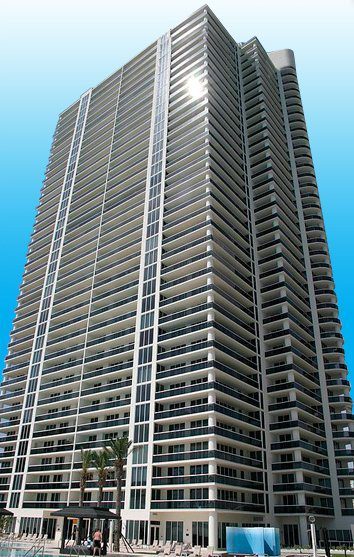 A condominium is a good option to consider when shopping for housing in today’s volatile Miami/Dade real estate market. Many desirable condominium units are currently listed and are worth looking into for price and value. Condo living offers convenience and amenities like property maintenance and community living. However, the smart shopper should be aware there are some special considerations when buying a condo rather than buying a house.
A condominium is a good option to consider when shopping for housing in today’s volatile Miami/Dade real estate market. Many desirable condominium units are currently listed and are worth looking into for price and value. Condo living offers convenience and amenities like property maintenance and community living. However, the smart shopper should be aware there are some special considerations when buying a condo rather than buying a house.
A major consideration is that of control. Generally the condo buyer is a co-owner of a total facility which includes all properties and is managed by a Board or a Condo Association. Condo owners, at purchase, agree to abide by the rules and regulations that control all business of the facility. A home owner has no such rules and can, within legal limits, make all decisions about his property.
After viewing and liking the condo unit and the community, the prospective buyer needs to find out how much it will cost to own and live there. Top of the list is the Association’s Monthly Assessment fee which can range from hundreds to thousands of dollars. This fee usually covers the staff and maintenance of common areas such as lobby, elevators, hallways, parking garages, roof, facade, pool, gym, landscaping, etc. In other words, the fee includes pretty much everything outside the perimeter walls of the unit.
The Monthly Assessment is supplemented by Special Assessment charges for unanticipated repairs and/or capital improvement projects such as re-roofing and facade refurbishing. This charge is generally allocated pro-rata according to each unit’s percentage of common elements. Property taxes may or may not be handled by Special Assessments.
All costs of maintaining and repairing everything within the perimeter of the unit fall to the owner. This includes all kitchen and bathroom fixtures, floor covering, light fixtures, painting, etc. Owners are also responsible for insuring the contents of their unit, including fixtures, flooring, furniture and personal property.
After tallying up all the costs, the prospective buyer needs to check out the financial stability of the condominium community. Potential purchasers should review the Association’s financial records to determine it’s ability to manage finances. The Association needs to have appropriate amounts of funds set aside for the day-today operation of the community. If the Association is lacking funds that may be an harbinger of poor maintenance and upkeep in the future.Another concern is the overall status of the accounts receivable including the number and percentage of owners who are late on their monthly fees, and the total amount of money due the Associations. Financial acuity and transparency are of prime importance to the prospective buyer. Any indication otherwise is enough to postpone a sale.
The final task here is a careful reading of the Condominium Rules and Regulations. These are often the Quality-Of-Life issues that the Buyer needs to understand in order to ensure his total compliance. These will include rules for parking, pets, noise levels, number of people that can live in a unit, regulate use of common areas, changes to the exterior of the unit such as awnings, window treatments; in other words, anything that has the potential to change the exterior of the condominium unit. If there are questions, they must be discussed and conclusions be reached.
If everything seems satisfactory, condo living can offer a terrific lifestyle but it is important to buy into a good community with a financially strong and well-run Condominium Association.






